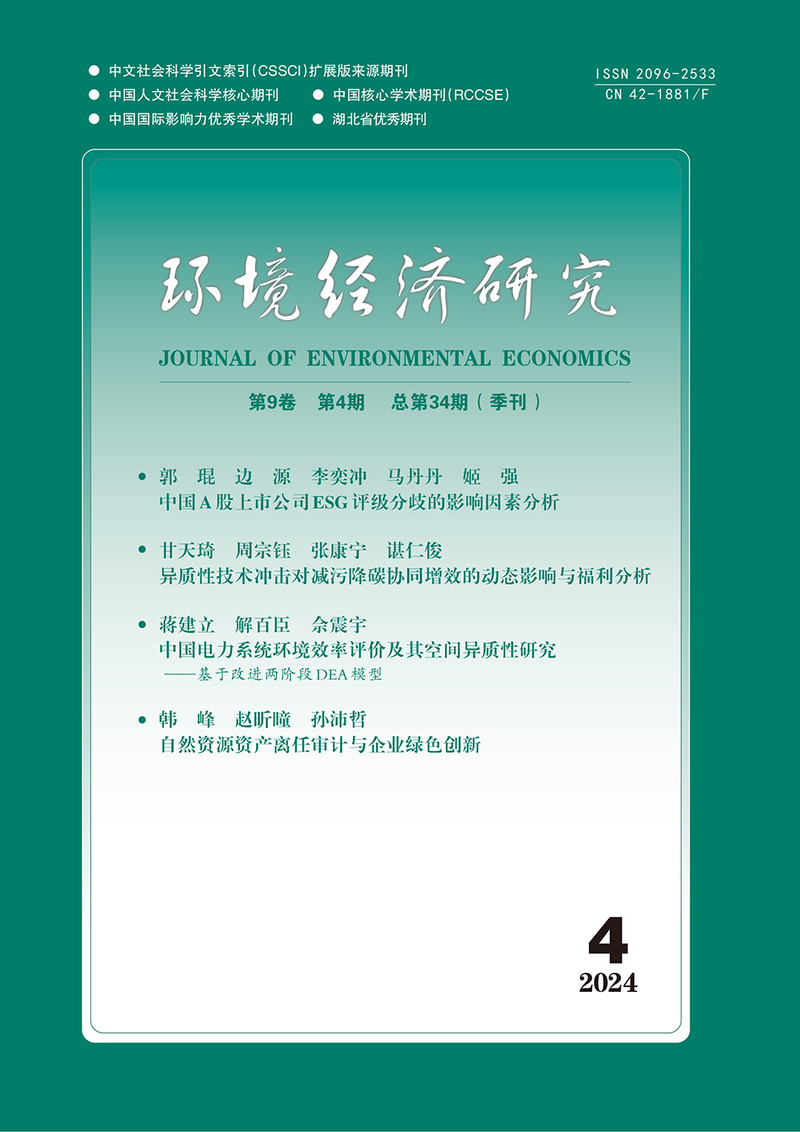Differential Water Price and Its Impact on Water Pollution Control
Qiao Xiaonan and Wang Yibo
摘要:当前工业用户的用水价格显著高于居民用户,存在着水价交叉补贴现象,关于是否应该调整水价交叉补贴的幅度甚至方向仍存在争论。本文借助CGE模型,对交叉补贴率变动下的经济绩效、用水量以及染物排放量的影响进行了模拟分析,并获得以下结论:工业用户补贴居民用户的方式有助于控制工业部门的用水量,若调整交叉补贴方向则会带来工业用水量较大幅度上升的问题,因此当前的水价交叉补贴策略仍具有合理性;并且,考虑到各个产业污水排放量和其中的污染物排放量比例的差异化特征,对不同的产业实行差别水价有助于减少高污染产业的化学需氧量与氨氮的排放。因此,借鉴惩罚性电价政策,对高污染产业实施惩罚性水价,相较于单独调整补贴率将更有助于结构调整与减排治污。
关键词:差别化水价;水价交叉补贴;CGE模型;惩罚性水价
Abstract:The current water prices of industrial users is significantly higher than that of resident users, and there is a phenomenon of cross-subsidization of water prices. Whether the range and direction of the cross-subsidy should be adjusted is still controversial. This paper simulates and analyzes the economic performance, water consumption and pollutant emission under the circumstance of changing subsidy rates using a CGE model, and the conclusions are as follows. The cross-subsidization policy can help to control the water consumption of the industrial sector. If the direction of cross-subsidization is adjusted, the industrial water consumption will increase significantly. Therefore, the current cross-subsidization strategy of water price is still reasonable. In addition, considering the rate of sewage emissions and pollutant emissions are different among different sectors, it is efficient to set a differential water price to reduce the emissions of sewage, ammonia nitrogen and chemical oxygen demand. Therefore, using punitive electricity prices policy for reference, the implementation of punitive water prices for high pollution industries will be more conducive to structural adjustment and emission reduction and pollution control than adjusting the subsidy rate alone.
Keywords: Differential Water Prices; Cross-Subsidization of Water Prices; CGE Model; Punitive Water Prices
基金资助:天津市哲学社会科学一般项目“马克思主义政治经济学的数理方法研究”(TJLJ19-001)与天津市高校习近平新时代中国特色社会主义思想研究联盟。
DOI:10.19511/j.cnki.jee.2020.02.001
